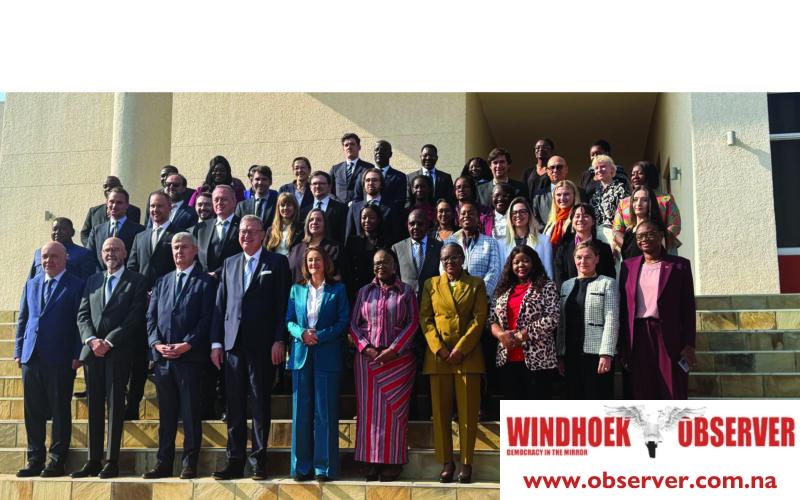Justicia Shipena
Preparations are underway for the next EU–Namibia Business Forum, scheduled for 24–25 March 2026.
The announcement was made during the 2025 EU–Namibia Partnership Dialogue held in Windhoek on Monday.
The dialogue was co-chaired by Namibia’s minister of international relations and trade, Selma Ashipala-Musavyi, and the European Union (EU) ambassador to Namibia, Ana Beatriz Martins.
It brought together senior Namibian government officials, EU representatives, and member states, including France, Finland, Germany, Portugal, and Spain.
Talks focused on strengthening economic and trade ties, with emphasis on the EU–SADC Economic Partnership Agreement and the African Continental Free Trade Area.
The meeting also reviewed progress on the strategic partnership on renewable hydrogen and critical raw materials, highlighting opportunities for value addition, skills development, and infrastructure.
Ashipala-Musavyi said the meeting marked an important step in strengthening cooperation.
“This continued engagement is testament to the strength and resilience of our partnership,” she stated. Namibia and the EU last held a political dialogue in 2022.
The EU remains one of Namibia’s largest trading partners. It imports Namibian fish, meat, grapes, precious stones and metals, ores, and charcoal, while exporting pharmaceuticals, machinery, vehicles, and mineral fuels to Namibia.
Since the launch of the EU–SADC Economic Partnership Agreement in 2016, Namibia has enjoyed full duty-free access to the EU market.
In 2023, 95% of Namibia’s exports to the EU went to Belgium, Spain, the Netherlands, France, Italy, Germany, and Portugal.
“This dynamic relationship represents a win-win exchange and mutually beneficial trade partnership. However, like all such relationships, it requires regular review and adaptation to reflect current realities,” Ashipala-Musavyi said.
She also commended EU support for Namibia’s development agenda, citing projects such as the N$730 million green industrialisation project, the TIDRET renewable energy project, the Etunda Feedlot, and drought response assistance.
She tied the dialogue to Namibia’s development priorities under the recently launched sixth National Development Plan (NDP6), which focuses on economic growth, human development, environmental sustainability, and good governance.
She stressed the need to align the Namibia–EU partnership with Africa’s Agenda 2063 and the UN 2030 Agenda.
“We are all interdependent. Hence, the importance of collectively addressing common challenges such as climate change, wildfires, drought and desertification, lack of energy, food insecurity, youth unemployment, migration, digital transformation and health risks, among others,” she said.
The dialogue also took place as the world marked UN@80 and the 25th anniversary of UN Security Council Resolution 1325 on Women, Peace and Security.
Namibia will host events both at home and at the UN Headquarters to mark the milestone.
Martins reaffirmed the EU’s commitment to Namibia, highlighting trade, green energy, and youth development.
“Ours is a partnership forged on the principles of solidarity, rooted in shared values of democracy, peace, and respect for human rights,” she said.
She added that Namibia’s leadership was a shared value.
“Namibia’s commitment to gender equality, exemplified by its female leadership, resonates deeply with Europe’s journey to empower women in prominent roles.”




